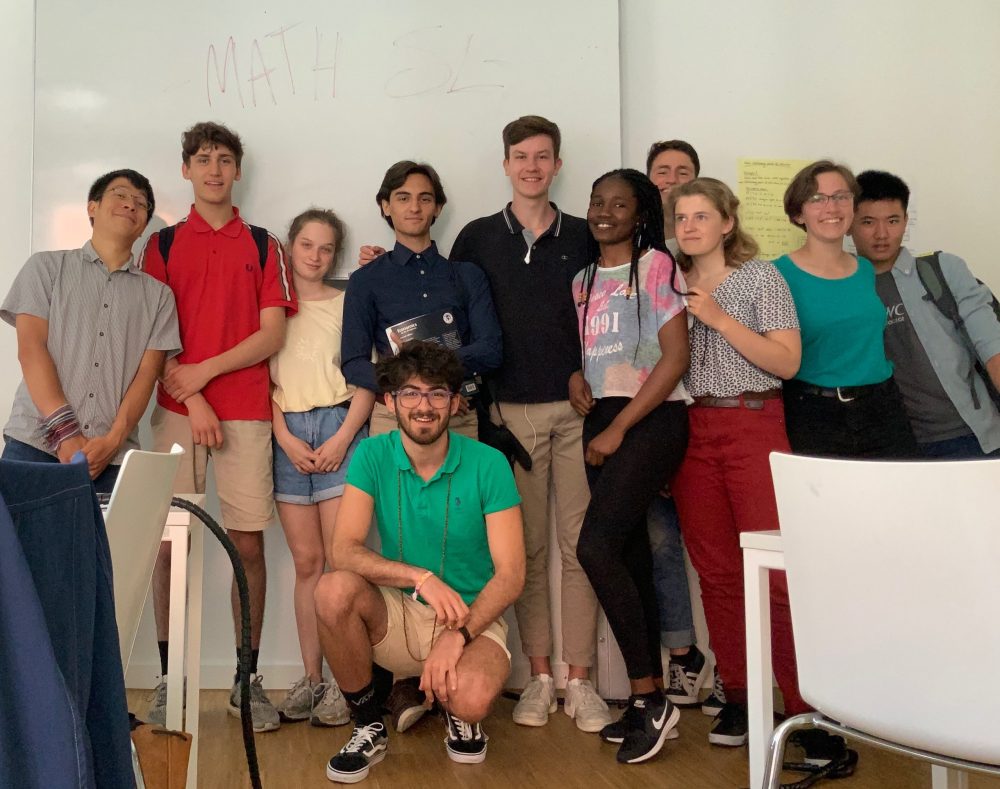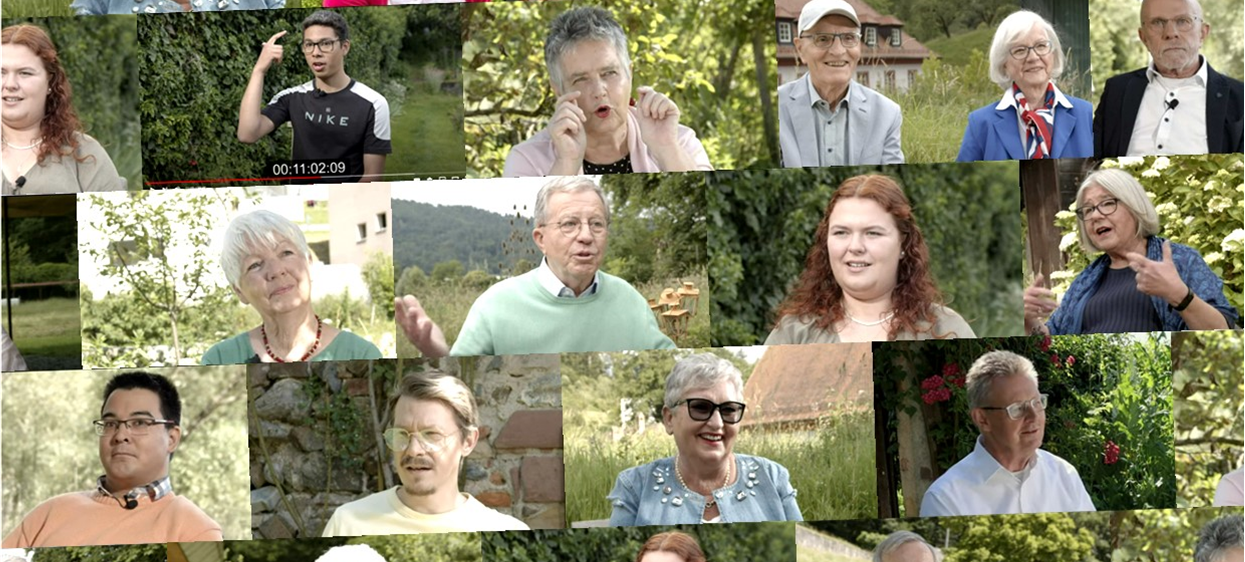Teaching at UWC RBC: “We could actually change something”

What makes teaching at a UWC so special? Our student Antonia Bonnaire, currently in her second year at UWC RBC, asked herself this question. During a conversation with Maths and TOK teacher Angus Liu from Hongkong, she explored different aspects of living and learning at our school. Being a graduate of the UWC sister College in Duino, Italy, Angus’ path led him back to UWC after his study in mathematics.
Which aspect of UWC made you decide to come back as a teacher?
First of all, I came back with the sense of wanting to give back to the movement because my own time at UWC Adriatic shaped me a lot. I loved the idealism and the very strong community sense at UWC, and so I thought that this would be an awesome environment to work in. It embodies many things I’ve always wanted to explore but didn’t have the chance to live out as a student – because I didn’t appreciate the opportunities enough or took a bit longer to “come out of my shell”. In the students here, I find what I admired in my co-years back in Italy: the wish to do something, to act. Students here in general are very motivated and want to learn; so, what is better for a teacher than to find curiosity?
Do you look at UWC in a different way now as a teacher?
Now, as a teacher, it is less about participating in activities. It is about creating the space for students so that they can enjoy and benefit from the UWC experience. As a student, you are always doing stuff, you want to be active, but your picture of UWC is a bit simplistic. You arrive with the general idea of making the world a better place. As a staff member, you think about ways to channel the teenagers’ energy. It is about offering these activities, bringing them to the outdoors, or making them acquire certain skills. My time here is for me a very good example of how to have an impact, to make the change happen: I joined in the second year of the school, when all systems were still building up, when a lot of input was required. Some of us teachers formed so-called working groups, tackling different issues such as student well-being or how to reduce stress by improving the timetable. As teaching staff, we are still constantly working on our support structure, discussing assessment policies and trying to improve our teaching practice. These are all things in progress. As teachers, we have considerable agency in making the school a better place, and we try to use this potential to our best.
How do you encourage students to follow their high ambitions but prevent them from overstraining themselves?
First of all, it is a very good thing that people are ambitious. One shouldn’t forget that for some students UWC is a unique opportunity to get a good education. But for others it is also hard to see that all of a sudden, others are better in some subjects. There is peer pressure, there is pressure from home or even the pressure they put on themselves. Our role as staff is to help students put things into perspective; we encourage reflection and provide new angles to the student’s own viewpoint, so advice is very personal and doesn’t apply to everyone. Some students who may not stretch themselves enough are encouraged to come out of their comfort zone a bit; others who overstrain themselves by wanting to take advantage of all the opportunities here are advised to sleep more. Through conversations, we facilitate this process of self-reflection. It is true that this is a place where there are always a lot of choices and opportunities to spend your time, so you need to find a balance to stretch but not in an unhealthy way.
In your view, how far should students go outside of their comfort zone?
(laughs) Seeing the incredible opportunities offered at a UWC, it would be a pity if people didn’t dare to try things they haven’t tried before. Maybe learning a new language, trying a new sport. It took me one and a half years until I could enjoy these new things that seemed scary and that I wouldn’t have done in Hong Kong. But I think that the UWC environment is a safe space to learn because you are not alone, you are in the same boat with all the other students who are new to this experience.
How do you deal with the variety in a UWC classroom?
Oh, it is a wonderful thing! Particularly in subjects such as economics or TOK, it is very valuable to have different viewpoints “from all over the world”, and as teachers, we support this. Even in mathematics, it can be eye-opening to hear how other people solve problems; I am constantly reminded that things can be different from what I have learned. But of course, variety also means that people come with different levels of experience, abilities, English proficiency, and so on. A student once pointed out in an announcement for the Inequality Special Focus Day that diversity and inequality are not far off. This is something you will be confronted with as a teacher at UWC. We need to meet the different needs of students and plan our lessons accordingly. Teaching is not so much about the teacher talking, even though this could of course be easier for me, but teaching should be student-centered. It is about finding a way that allows students to move at different paces, to work at their own levels. It wouldn’t make sense to run at such a fast pace that some students loose track whilst for others it is still too slow. I start with small things to encourage people to build up confidence so that in the end everyone can take part in the lesson.
What is your role as a personal tutor here at the college?
I would say that this is one of the best parts of my job because it gives me the opportunity to take part in the lives of students. It broadens my horizon a lot. I get to understand where people are coming from, which struggles they face, what their journey is like. I am very grateful for the openness my tutees have shown. It is a critical but friendly relationship, in both directions. I try to raise perspectives that would be good for them to think about, and I am happy if they tell me how I could support them better. Sometimes, I have to be clear that they need to do better, at other times I can give advice, or maybe only listen while going for a walk.
Do you learn from your students?
I see qualities in my students and tutees, and I know that I am not there yet. There are a lot of things to learn from them, and I am very grateful for the direct feedback they give me so that I can improve. You learn information of course, where students are coming from, what their culture is, but the more important aspect for me is to learn how they approach life. For example, the story of my tutee, a refugee from Syria, who told me how they walked all the way to Germany. After all the hardship, they could still get some thing positive out of it, making them appreciate life a bit more. This is a perspective I would have never thought of without the student telling me, and I think this is very inspiring.
Which values did UWC teach you and which values would you like to get across?
Hong Kong is a very pragmatic place, so the idealism of the UWC movement was something new to me and shaped me a lot. I learnt to dream, to believe that change is possible, even when people in general are very cynical about it. It’s true that we could always think, “Well, we can’t do anything,” but it always takes somebody to stand up and say, “But, no, we could actually change something.” And particularly at this place, all of a sudden, this is not only a possibility. You can actually get people on board and let the idea grow. It is not just empty talk about changing the world. You can first practice this by changing your community here. As a member of staff, I want to make sure that students develop the sense that they have agency and that they can make a change if they care about something. Student activism – environmental activism at the forefront – is something we need to continue to support and push as a movement and as a College because it is at the core of our mission. A message I hope to pass on to my students is: We have to dare to dream for change but also to develop practical skills, so that after having internalized this sense of agency, these skills will enable us to realize our dreams in any community we will be part of in the future.
This interview is from our Annual Report 2019. Find out more here.

